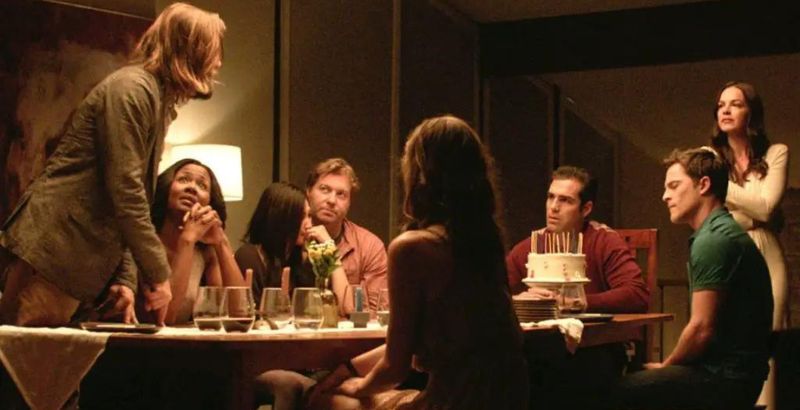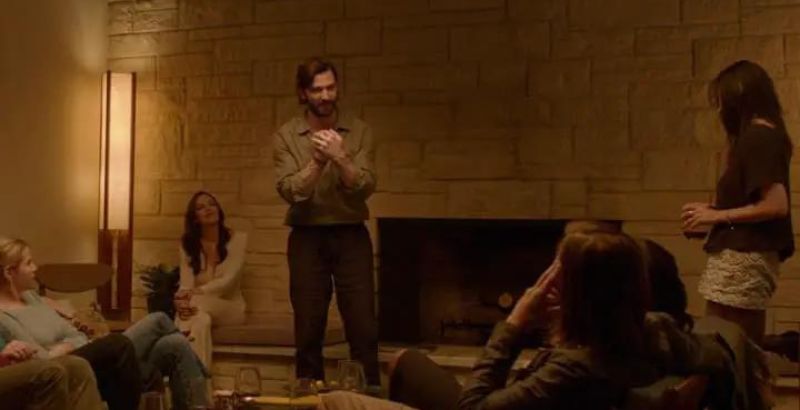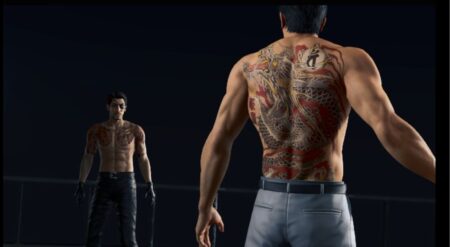
There is a particular narrative I’m drawn to across all fiction, but especially in horror: the narrative that trauma and grief are very real ghosts that haunt us and that we must make peace with. Most of my favorite narratives that center this trope, like The Haunting of Hill House or IT Chapter Two, trend towards the hopeful. The protagonists achieve some sort of catharsis, and we see them finding either the courage to move forward or fast forward to a happy moment, an epilogue where they find peace. However, this is not a trope that solely lives in the realm of happy-ish endings and catharsis.
That said, Karyn Kusama’s brilliant and deadly The Invitation takes the idea of catharsis and cuts it out of the narrative. She doesn’t bother with platitudes. There’s no easy, soft ending that offers kindness or hope. The moments of light we do get come from humanity’s ability to endure, not from any sort of happily ever after, and that’s what makes The Invitation so damn good.
The plot is deceptively simple. Two years after the death of his son, Will (Logan Marshall-Green) attends a dinner party hosted by his ex-wife Eden (Tammy Blanchard) and her new husband David (Michael Huisman). The new happy couple speak of “The Invitation,” a group designed to assist grieving and traumatized folks into letting their pain go. This includes showing their dinner guests a video of the enigmatic Dr. Joseph comforting a dying woman as she takes her last breaths. Definitely good dinner party material.
Will, traumatized by the death of his son and suspicious of his ex’s newfound peace, begins to suspect something more sinister is at work here. The Invitation plays with the idea that it might just be Will’s trauma, but ultimately he’s right: Eden, her new husband, and their two friends who’ve tagged along for the ride have a deeply disturbing endgame.
This all builds to a climax in which Will, his new girlfriend Kira (Emayatzy Corinealdi), and another guest have to fight for their survival. Worse is that once they’ve seemingly defeated their malicious hosts, they discover that Eden and David’s plot for a group suicide/homicide was not the only one at play. Red lanterns illuminate the Hollywood hills as more attacks are carried out. Helicopters roar overhead. Will and Kira hold hands as screams echo around Los Angeles. As far as endings go, it’s fairly bleak, but it works so well because it faces a hard truth: catharsis is hard to come by and those of us who are living must carry on in the face of immense adversity.
In film and television, it’s easy to skip the messy parts of recovery. Our heroes go through immense trauma, but their epilogues feature them finding some hope and comfort. Unfortunately, in the real world, things aren’t so smooth. Time might heal some wounds, but we don’t get to fast forward through the messy realities of recovery. Instead, we have to live with it and, to quote The Walking Dead, make room for it.
“I’ve been waiting to die,” Will tells Kira at one point in the film. But while he might be apathetic about life, he has made room for his pain and continues to live.
He’s not a happy-go-lucky guy, and he’s still suffering. His son’s death isn’t given narrative weight beyond being a senseless tragedy. There is no noble grief here. It’s ugly, and Will is miserable, but he’s forcing himself to go forward. We see that when he arrives to the party with his new girlfriend, who he’s building a life with. We see that in his protectiveness towards the other guests and his empathy for them and for Eden.
We see it most clearly when he, Kira, and Tommy must survive their murderous hosts. Will might be waiting to die, but he’s not about to lay down and accept it when it comes knocking in the form of a brutal attack. He fights to survive, and for others to live.
At the end of The Invitation, Will, Kira, and Tommy are left shaken. Tommy’s boyfriend is dead, and we see him grieving during his last moments in the film. Kira and Will? They’re going to have fresh pain to deal with as they not only face coping with being attacked but the fact that the city is under attack as well. And yet? They face it. They move forward. There’s no easy answer for them, but they keep moving forward, even if we stop being privy to their story when the credits start rolling. We can assume they will continue to head into the unknown, even if the narrative doesn’t make it explicit, based on what we’ve seen.

Eden, on the other hand, is not recovering or even coping well. She’s pushing those emotions down, ignoring them, and using them as a reason for self-destruction. Her coping skills might make her seem more “well-adjusted” than Will’s tumultuous grief at the start of The Invitation, but that is far from the case by the end. She’s repressing her emotions, using a cult as a bandaid for a bullet hole and community can be key to reconciliation. There’s a reason that in stories like IT or The Haunting of Hill House, we find that the main characters find catharsis through shared trauma as a group. So, ostensibly, Eden is following in the same steps as her horror counterparts.
The catch is that this cult does not advocate for catharsis. They advocate for murder and suicide; while their cult’s true aim is never fully revealed, it seems to be that they want to quite literally take as many people with them as they are reunited with their loved ones. They are prioritizing their perceived catharsis over the lives of others, who most certainly are not consenting to die. We all want an easy promise, a bedtime story. We want to fast forward to the point in time where our happiness comes back after we endure a tragedy. But that’s not the case. Grief and pain are messy, and that mess doesn’t just get to get swept away by an easy out because even if we’re not part of a murder cult, we’re still not embracing and facing that pain.
Trauma recovery has become a key theme in many modern works of horror, but we rarely see how recovery can be weaponized and used in a self-destructive fashion. The Invitation spins this narrative around and crafts something bleak, something powerful, and something that sticks with you long after the credits roll.






